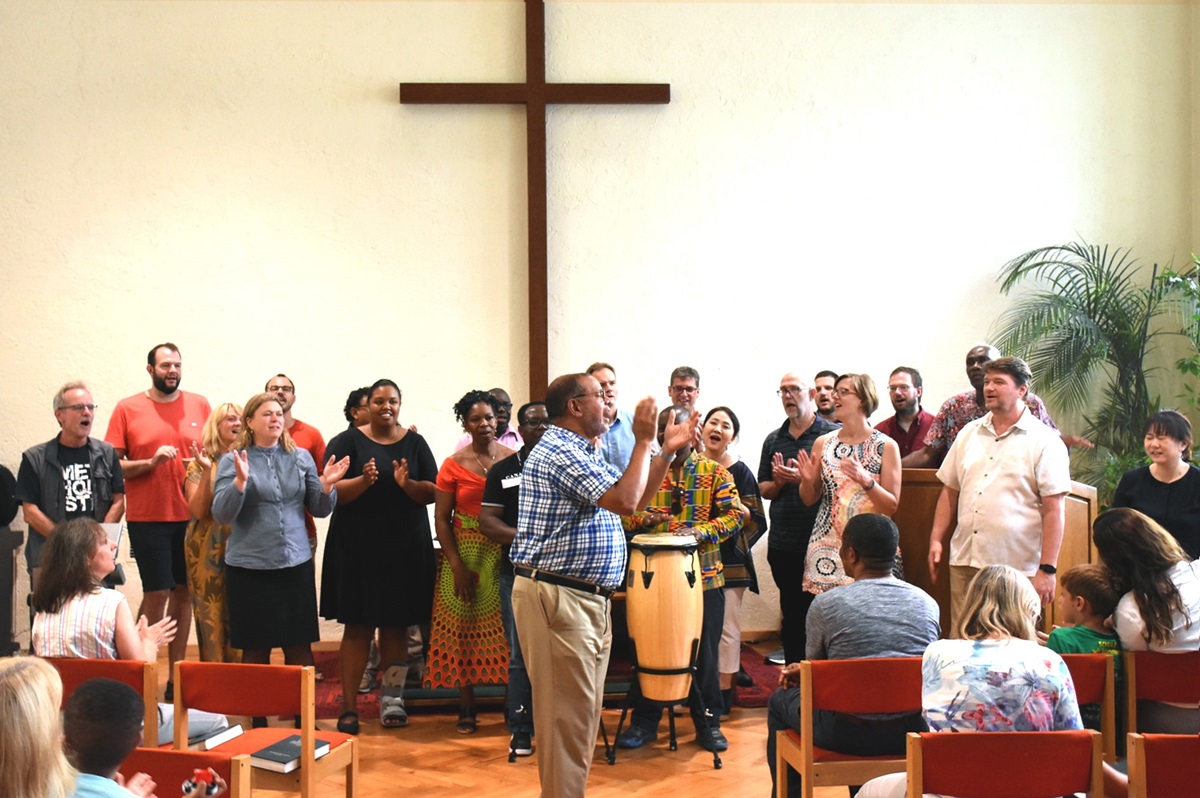In recent years, Methodist congregations across Europe have opened their doors to refugees, asylum seekers and migrants from distant lands in search of greater freedoms and opportunities.
The churches have provided humanitarian assistance to those in need and are receiving new members who speak different languages and worship according to different traditions.
That can be complicated.
New members representing other cultural norms can energize congregational life, but many local churches also experience difficulty integrating these new members from faraway lands.
The United Methodist Board of Global Ministries has responded with a pilot project to train pastors and laity leading congregations affected by migration. The first session of the Institute for Multicultural Ministry was held Aug. 22-30 at The United Methodist Church of Germany Educational and Training Center in Stuttgart.
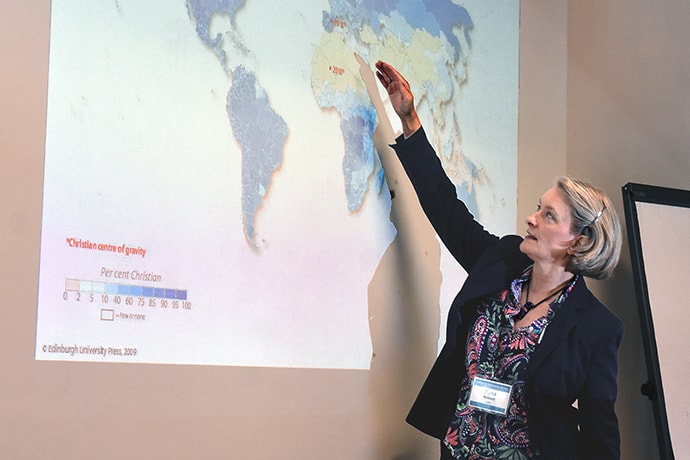
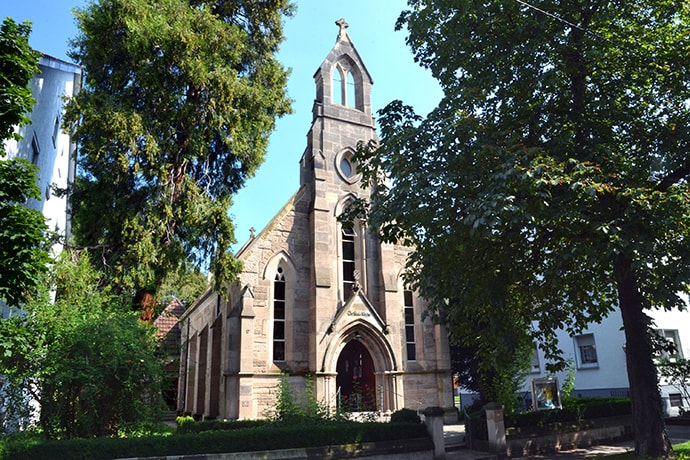
Leading theologians from United Methodist seminaries and agencies in Germany and the U.S. lectured on topics ranging from Missio Dei and Biblical hermeneutics to cross-cultural leadership and conflict transformation in a multicultural community. Many of the lecturers also engaged in small groups and private conversation with the congregational leaders, offering further resources, guidance and nurturing care. They also joined attendees for a series of site visits to nearby communities actively engaged in vital ministries with migrants.
Through worship and intensive discussion, participants witnessed how United Methodist communities in Germany are welcoming and integrating recent arrivals into their congregations.
The institute also aimed to create a sense of community among the congregational leaders by engaging them in the teaching and learning process. As the pastors and laity led workshops, met for small group discussion and shared stories from the ministry field, they gained valuable lessons from one another about cross-cultural leadership.
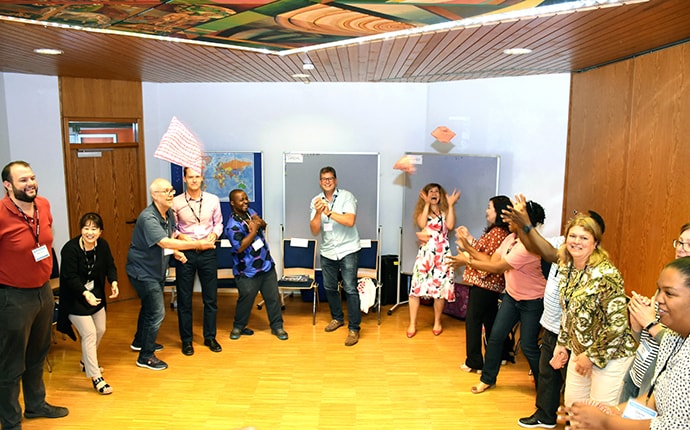
The Rev. Luiz Cardoso, a pastor born and raised in Brazil, told about learning to navigate cultural norms and barriers in order to successfully plant a new ministry in the north of England. Central to this experience was stepping back and allowing people “to express their own story with God … to see God’s story coming to their context and become their story,” he said.
Several pastors spoke of the important role that worship plays in the multicultural community. In many congregations, leaders find it easier to build community and trust through singing and praising, rather than unpacking biblical texts or grappling with theological concepts.
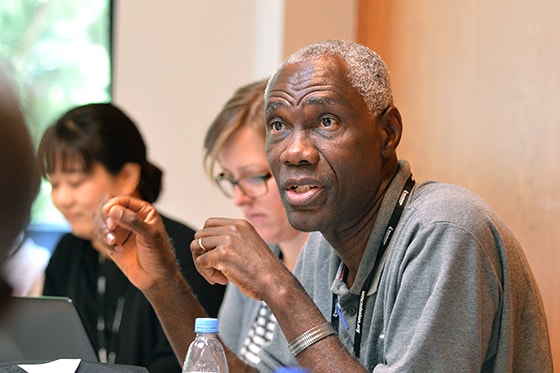
At the end of the week, participants covenanted to stay in touch and support one another in prayer and continued sharing.
Many expressed their appreciation for not only the practical training they will apply to their ministry, but also for the spiritual lift they received during the week. As one pastor testified: “Not many people understand the multicultural ministry that we do. This training serves as a reminder that I am not alone. Through our worship and fellowship, I have built and renewed relationships that will sustain me as I return to my community.”
Ruof is the head of communications and spokesperson for the United Methodist Church in Germany. For more information, contact communications@emk.de. Calhoun is a Global Ministries missionary serving in Kyiv, Ukraine.
News media contact: Vicki Brown, Nashville, Tennessee, (615) 742-5470 or newsdesk@umcom.org. To read more United Methodist news, subscribe to the free Daily or Weekly Digests.
Like what you're reading? Support the ministry of UM News! Your support ensures the latest denominational news, dynamic stories and informative articles will continue to connect our global community. Make a tax-deductible donation at ResourceUMC.org/GiveUMCom.

